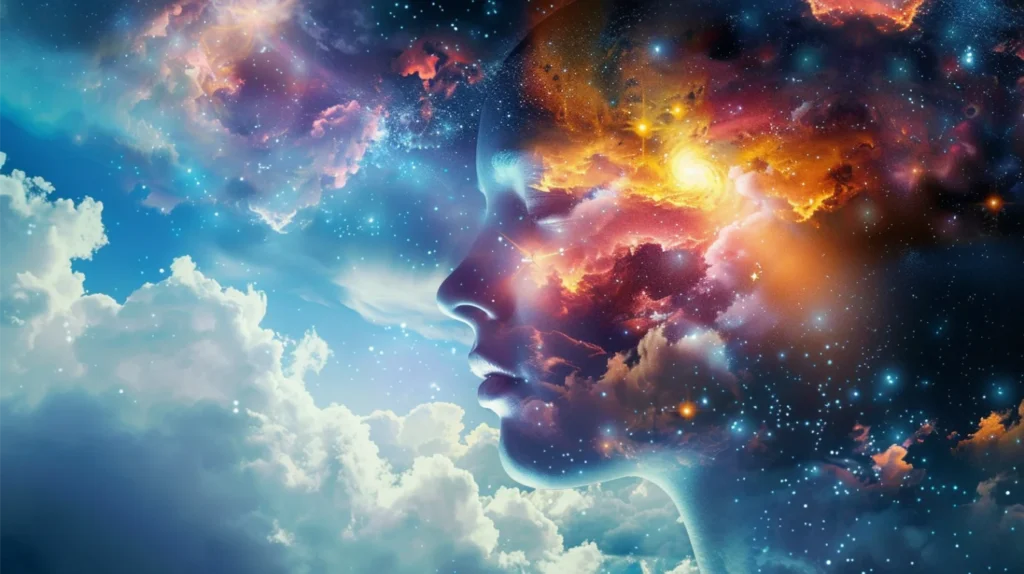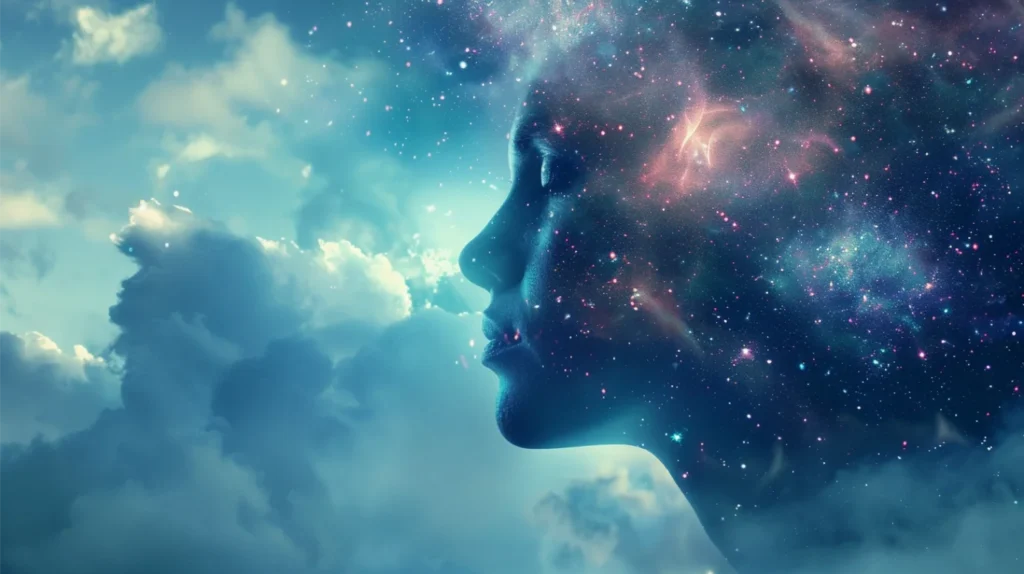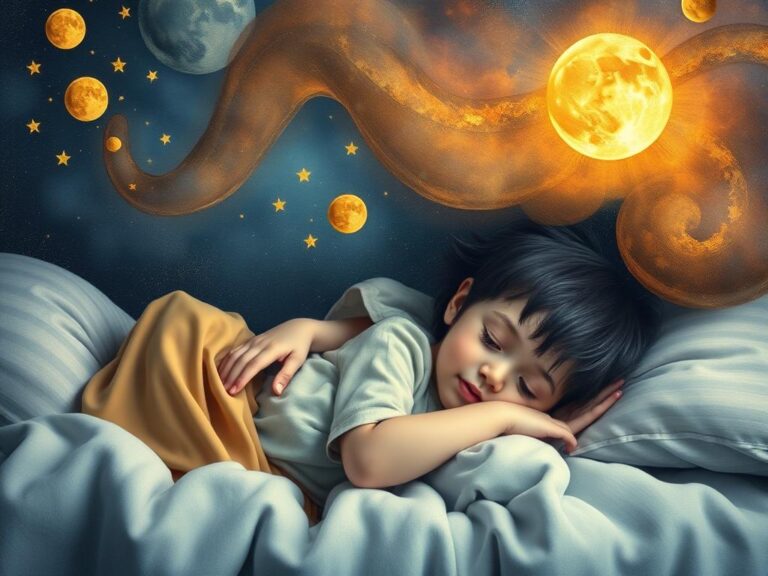Dreams and Emotions: Exploring the Connection

Dreams are a fascinating window into our subconscious mind, often intertwined with our deepest emotions. Have you ever woken up from a vivid dream and wondered why you felt so angry, overjoyed, or scared? The relationship between dreams and emotions is a compelling topic that can reveal much about our inner world. In this article, we’ll explore how your emotional state influences your dreams, how dreams can help you process your feelings, and even what they can teach you about yourself. If you’ve ever pondered these connections, take a stroll through this insight with us. To dig deeper into dream interpretation techniques, visit dreamersintheround.com.
Key Highlights for Easy Reading:
- Emotions shape dreams: Your feelings while awake play a huge role in dictating what and how you dream.
- Dream symbols connect to emotions: Seemingly random imagery often ties back to specific emotional experiences.
- Processing emotions through dreaming: Dreams act as a natural therapy, helping you make sense of complex feelings.
- Recurring dreams are emotional signals: If a dream keeps showing up, it’s likely tied to unresolved emotional themes.
Understanding How Emotions Influence Dreams
Emotional Experiences and Dream Content
Your feelings during the day create a ripple effect on your dreams at night. Research shows a direct connection between your emotional experiences while awake and the types of dreams you experience. For instance, after a stressful day at work, you might dream of being chased or failing an important test. On the other hand, a joyful event, like a wedding or a long-awaited reunion, could lead to lighter, happier dreams.
Dreaming is your mind’s unique way of connecting dots between emotions and specific memories, often in ways you may not consciously realize. Have you ever woken up thinking, “Why did I dream of that person from 10 years ago?” Often, the emotional undertones are the hidden explanation.
Nightmares as Emotional Alarms
Intense negative emotions such as fear, anxiety, and anger often manifest as nightmares. For example, someone experiencing anxiety due to a big decision might find themselves dreaming about losing control – like falling into an endless void or being unable to escape a locked room. Nightmares can be distressing, but they are your brain’s way of prompting you to face and deal with unresolved concerns.
Think of nightmares as emotional alarms ringing through the night, urging you to listen carefully to what’s bothering you beneath the surface.
Symbolism: Emotions Hidden in Imagery
Dreams speak to us in a language of symbols and metaphors that relate to our emotional state. Even fantastical scenes in dreams can represent everyday feelings. Take a look at some common dream emotions, along with possible underlying interpretations:
| Dream Scenario | Emotion/Meaning |
|---|---|
| Falling from the sky | Fear of failure, lack of control |
| Flying freely | Feelings of liberation or newfound confidence |
| Teeth falling out | Anxiety or concerns about self-image |
| Being late or missing something | Stress about meeting expectations or deadlines |
| Encountering someone aggressive | Internalized anger or unresolved conflicts |
Look at that table above. Which one resonates most with you? It’s often the case that these dream symbols vary from person to person, depending on context and emotional associations.
Positive Emotional Dreams
Not all dreams dwell on stress or uncertainty! Pleasant dreams, such as walking in a beautiful garden or swimming in a crystal-clear ocean, can signify peace, happiness, or the resolution of emotional conflicts. These dreams reinforce positive feelings and act as mental rewards for joy or emotional harmony in your waking life.
The Recurring Dream Puzzle
Recurring dreams deserve special attention because they often signify emotions or problems you haven’t resolved yet. Do you keep dreaming of being trapped in the same room, showing up unprepared for a test, or arguing with a particular person? These dreams aren’t mere coincidences—or just random reruns. Instead, they’re emotional messengers that demand action.
For instance, if you’re plagued by the dream of being unable to speak when you need to, it could link to feelings of being unheard or powerless in a particular relationship or situation. By addressing these unresolved emotions in your waking life, you might find the recurring dream fades away over time. Keep an open mind: your recurring dreams might be the nudge you need to break through emotional roadblocks.
Emotional Healing Through Dreams
Did you know that dreams serve as a kind of emotional therapy? While you sleep, your brain processes, organizes, and works through overwhelming or confusing emotions that might feel impossible to tackle while awake. This fascinating process, also called emotional memory consolidation, enables you to make sense of life events, especially those that stir your emotions.
Consider dreams about losing a loved one. Initially, these dreams might evoke tears and sorrow. Over time, however, the tone of the dreams often shifts, as your mind gradually helps you process grief and accept the loss. Similarly, dreams can positively reframe other big emotional upheavals, offering unique insights that are only possible while you’re asleep.
How to Tune In
Want to use your dreams as an emotional compass? Try keeping a dream journal by your bed. Writing down your dreams—even if they seem silly or fragmented—can help you establish patterns and understand your emotional waves. What mood often accompanies your dreams? Is there a recurring symbol or feeling that always sneaks in? The answers might surprise you.
Exploring Dream Symbols: A Table of Connections
Dreams often utilize symbolic imagery to reflect deep emotional realities. Here are a few examples and their emotional connections to stimulate your own interpretations:
| Dream Symbol | Emotional Connection |
|---|---|
| A storm or hurricane | Inner chaos, overwhelming emotions |
| A bright, sunny day | Joy, clarity, renewed hope |
| Running endlessly | Escape fears, avoiding responsibilities |
| Animals like lions | Strength, hidden desires, or instincts |
| Climbing mountains | Overcoming challenges, personal growth |
Conclusion: What Do Your Dreams Say About You?
Your dreams are more than just fleeting nighttime fantasies—they’re uncensored reflections of how you’re feeling right now. By understanding their emotional underpinnings, you can unlock deep insights into yourself and your current state of mind. Ask yourself: What is my dream really trying to tell me? You might find an emotional message tucked into the folds of seemingly random details.
At their core, dreams are a gift. They’re the unfiltered voice of your inner self speaking out and asking to be heard. Whether they provoke laughter, tears, or curiosity, they are worthy allies in the exploration of your emotional world. Start by paying attention to the small details, consider patterns over time, and don’t shy away from diving deeper into your dream symbols and emotions!
Curious to learn more about how others interpret their dreams? Continue your exploration at https://dreamersintheround.com/. Time to unlock the emotional language of your dreams!










